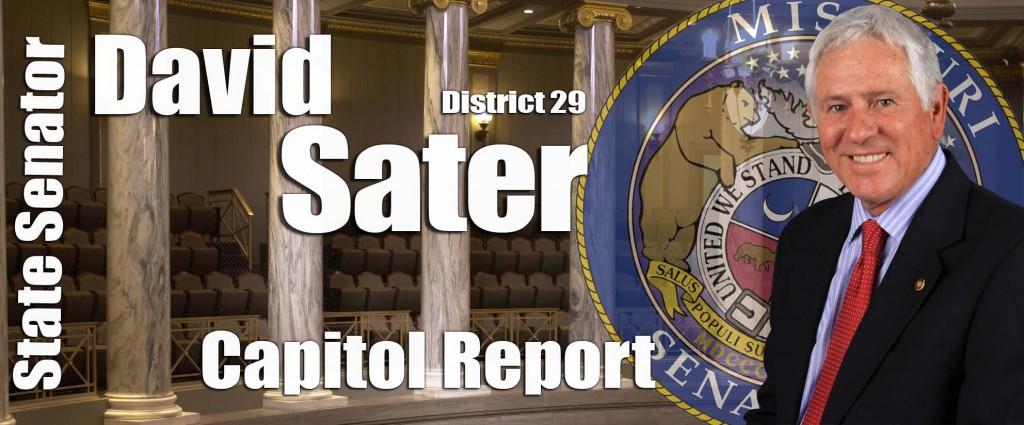Almost everyone has seen and experienced dramatic increases in the cost of their healthcare over the past few years. While ObamaCare made lofty promises about increasing access to care and driving down costs, it has had the opposite effect. Premiums are going up, patients can’t find doctors who will treat them, and government-provided healthcare costs and enrollment are growing at an alarming rate. Missouri’s taxpayer-funded healthcare program for low-income recipients, Medicaid, covers approximately 1 million people, or one in six people. Medicaid costs to taxpayers are closing in on $8 billion, or nearly one-third of the state budget. Just in the past year, 120,000 Missourians were added to Medicaid and all of General Revenue, plus $25 million, will comprise the state budget in Fiscal Year 2017 to pay for the program and meet federal matching fund requirements. Quite simply, this is the biggest, most expensive program in state government.
You might ask yourself, “How can a program this big run efficiently and be responsible to the people who pay for it?” The answer is: it’s not. The fact is, the Medicaid program — as it is currently administered and mandated by the federal government — discourages personal responsibility and, instead, encourages unhealthy lifestyles and unnecessary healthcare utilization that drive up costs. Medicaid officials in Missouri estimated that there were almost 90,000 unnecessary emergency room visits in 2014. For the same procedure or treatment, the ER costs between three and five times what it would cost at urgent care and it is many, many times what it would cost at the doctor’s office.
We know it costs more to treat patients in the ER and we know that Medicaid enrollees use hospital emergency rooms more often than privately insured patients and even the uninsured. Since they can’t be turned away and aren’t responsible for paying for their healthcare, patients on Medicaid too often use emergency rooms as their main health care provider. This puts tremendous strain on ERs, and limits their ability to attend quickly to health emergencies. In response, I filed Senate Bill 608. A provision in this bill would allow ERs to charge an $8 co-pay to Medicaid patients inappropriately using the ER in a non-emergency situation. This small fee that is less than most insured patients pay for any ER visit. It will push Medicaid patients away from the ER and to primary care doctors where they can be treated better and at a lower cost to the state.
Another part of SB 608 is also directed at improving Medicaid efficiency. Typically, Medicaid recipients fail to show up for their doctor’s appointments at a rate of two to three times that of private insurance, and some estimates put the Medicaid no-show rate as high as 40 percent. As a result, many doctors are forced to double and even triple-book these appointments. This means longer waits in the doctor’s office and lost time and money for a small business. Most private insurance plans require patients to cancel an appointment at least 24 hours in advance or they will be charged a missed appointment fee. Why don’t the same rules apply to the Medicaid population? My bill would simply impose a $5 fee for a second missed appointment, if the patient didn’t cancel 24 hours ahead of time, $10 for the third and a $20 fee for a fourth and any subsequent no-show. There would be no fee for the first no-show. Right now, Medicaid only incentivizes participants to keep appointments or cancel. High no-show rates prove this policy is not working. But, with greater accountability or skin in the game, no-shows would drastically decrease, the state would save money and patients would receive more comprehensive care.
The last part of my bill was added on the Senate floor through amendments and is intended to enhance healthcare price transparency. The reality is most patients don’t know what they are actually paying for when they go to the hospital and don’t find out until they get their bill. The language added to my bill creates a web portal where hospitals and healthcare providers are required to share costs of service for the 100 most common procedures. Right now, this information is difficult for healthcare consumers to get and even harder to understand. Knowing the true cost of healthcare will encourage competition and market forces will help drive down costs. Consumers can then make better decisions about what care they need and where they want to receive that care. Embracing free market principles and transparency will make our healthcare what ObamaCare is not: more affordable and more accountable.
Medicaid may be free to recipients, but the taxpayers are footing the bill. Currently, the program has little to no accountability measures and places not expectations on recipients to responsibly utilize that free care. We can drive down healthcare costs and, at the same time, maintain quality of care. Having some skin in the game and using a little common sense is one of the ways to achieve that goal and SB 608 is a step in that direction.
As always, I welcome your ideas, questions and concerns about Missouri government. You may contact me at the State Capitol as follows: (573) 751-1480, david.sater@senate.mo.gov or by writing to Sen. David Sater, Missouri State Capitol, Room 419, Jefferson City, MO 65101.

